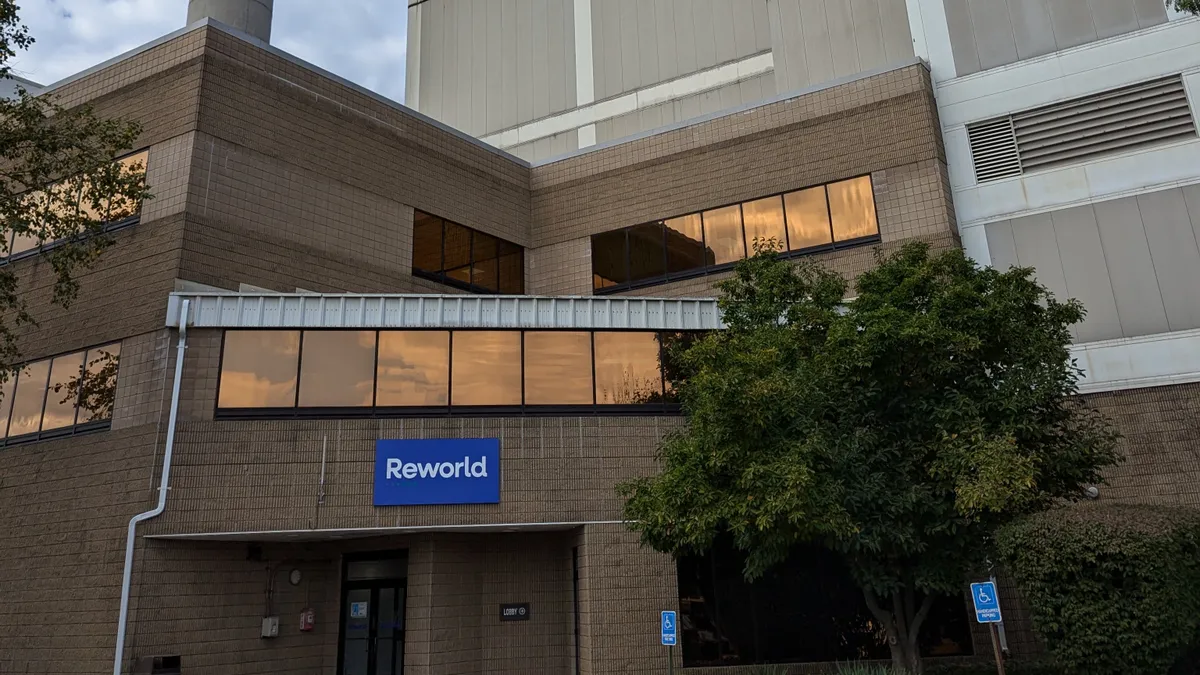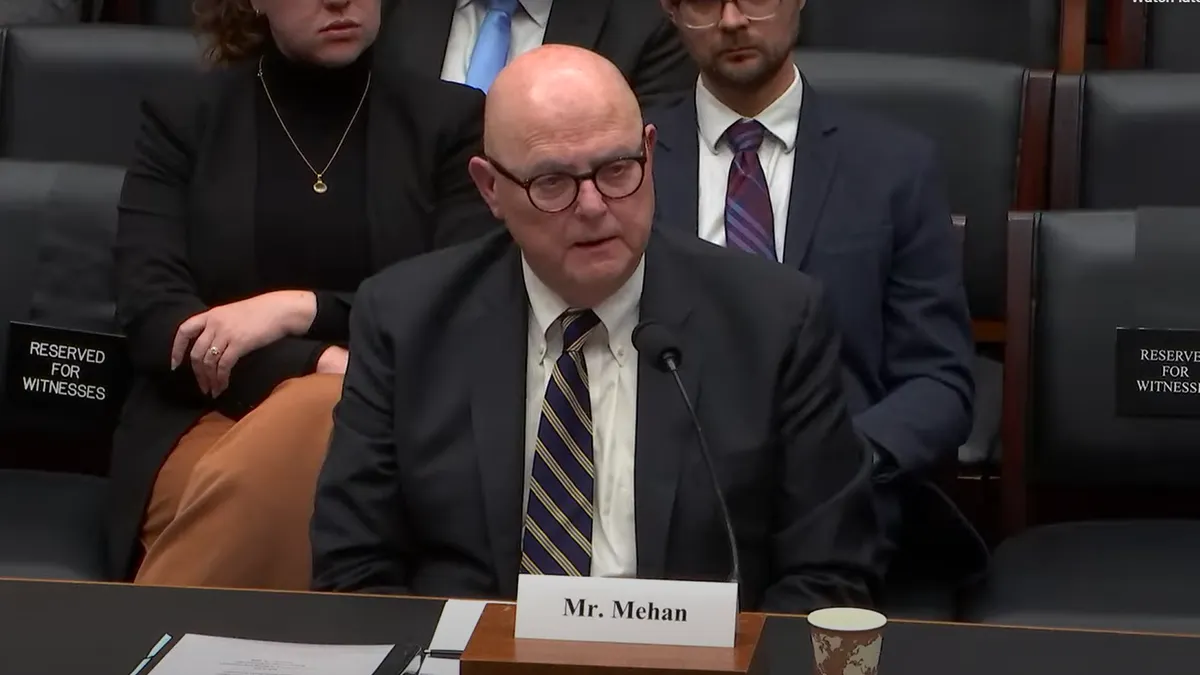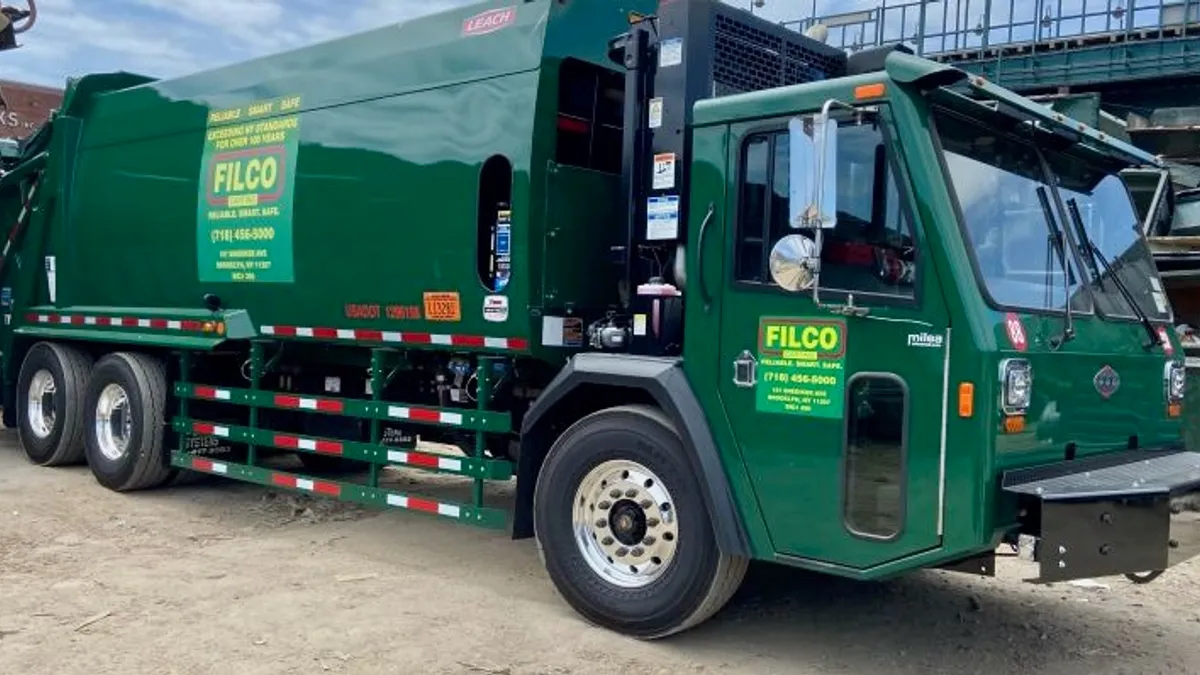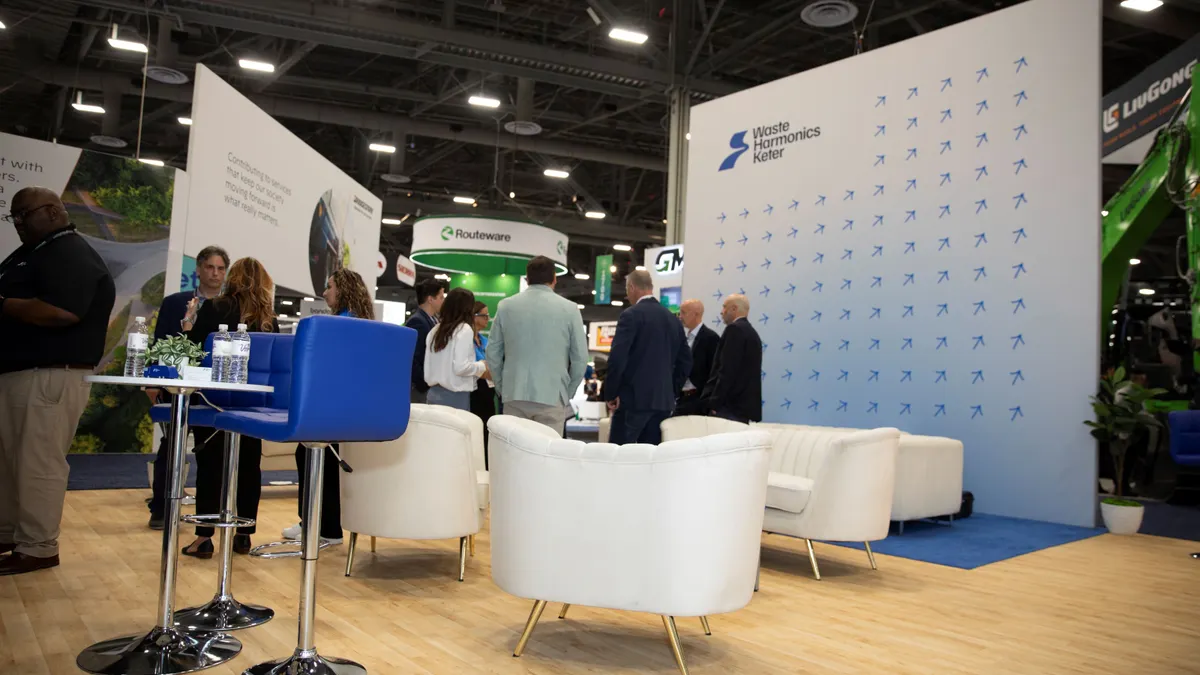People living in Bristol, Connecticut, say the noise hasn’t stopped. For two years, residents of the suburban city west of Hartford have told authorities they’re plagued by a “low industrial hum” emanating from the Reworld Bristol mass burn combustion facility, which was built by a public authority and operated by Reworld since 1998.
The issue has led the Bristol-Burlington Heath District, which regulates noise issues, to contemplate issuing fines to Reworld. State Rep. Rebecca Martinez, who was recently elected to her first term representing the Bristol area in the legislature, introduced a bill to address industrial noise as one of her first actions in office, and companion legislation has been filed in the state Senate.
The amount of waste shipped out of Connecticut has grown steadily in recent years, and officials have been searching for ways to reduce waste while identifying cheap disposal capacity. Reworld, which is in the midst of realigning its strategy and exiting certain West Coast markets, is looking to expand its portfolio in a state where incinerators are aging out without replacement.
In Bristol, the company is in the final stages of receiving a permit to begin burning biomedical waste as a portion of its overall feedstock. And the company is proposing a new plant in Preston, doubling incineration capacity at an existing combustion site.
Reworld believes it can provide a key solution to Connecticut’s continuing waste disposal crunch. But it’ll have to convince incineration skeptics it operates safely if it wants to realize its ambitious plans.
Connecticut's declining disposal capacity
Residents say the company’s actions to address the noise so far are insufficient. They also decry an attempt by Reworld to begin burning biomedical waste at the plant, as well as regulators’ willingness to approve such a plan.
“We have emissions inspections for our cars. You can’t renew your registration if you’re not up to date on your emissions,” Francis Pickering, a Bristol resident living near the plant, said. “But here we have a facility that is violating the noise pollution standards in their permit, but they’re allowed to renew their permit.”
Reworld says it has made a series of steps to address the noise, including upgrading equipment. And despite concerns from residents, the company also insists burning the biomedical waste at the plant is safe and effective.
Tom Koltis, a senior vice president at Reworld, said community members should not be concerned about the medical waste permit, noting the facility will only be taking in non-hazardous medical waste. He said that the materials would be handled in a safe manner.
“We’re taking waste that would otherwise go to a landfill,” Koltis said in an interview. “This is the most sustainable way to destroy this material. There’s no hazard involved with destroying this material, any more so than treating municipal solid waste.”
Adding biomedical waste to the Bristol plant could be a lucrative choice for Reworld, said Peter Egan, a former Connecticut official who worked with the state’s publicly owned incinerators. He said allowing Reworld to find new sources of revenue, provided they are safe, should be a priority for the state. Otherwise, disposal capacity could continue to fall.
“It’s important that Reworld makes money so that that plant continues to operate,” Egan said. “If Reworld can make a few more dollars by taking in medical waste at a risk that is insignificant, in my opinion, they ought to be allowed to do it.”
A plan in Bristol
The Reworld Bristol facility has two large combustors that can process up to 716 tons of municipal solid waste per day. As of 2021, Reworld has contracted with 14 communities that are part of the Bristol Resource Recovery Policy Board to receive waste.
Reworld's initial application to burn biomedical waste at the existing plant called for capacity to handle 57 tons per day of the material as a weekly average and up to 114 tons per day as a daily max. The plant would include a tipping floor with 267 cubic yards of capacity as well as up to 1,040 trailers of additional storage capacity.
Under its existing permits, 8% of the waste Reworld burns in Bristol can be non-municipal solid waste. The new permit would allow biomedical waste to be included in that category.
The company touted its 30-plus years of experience in operating a biomedical waste program, noting facilities in Oregon, Florida and Alabama that process such materials. It assured regulators that such programs "destroy pathogens and ensure no increase in emissions" by co-combusting with MSW.
On Jan. 16, Connecticut Department of Energy & Environmental Protection staff recommended the agency’s commissioner approve Reworld’s permit request. Bristol Residents for Clean Air, a community group, immediately rallied in opposition to the determination.
Jodie Maro, a founder of the group, said she’s concerned about an increase in toxic emissions coming from the plant as a result of the new waste being burned. Bristol is currently protected by Connecticut environmental justice laws, requiring extra community engagement for projects or permit changes like the one proposed by Reworld.
While the facility is already required to continuously monitor sulfur dioxide, nitrogen oxides and carbon monoxide, Maro would like to see the state require more pollutants to be continuously monitored.
“We don't want to see the plant be forced to close, but we do want some protections in place for not only ourselves at Bristol, but for our neighboring residents and Connecticut as a whole, for every stack that burns garbage,” Maro said.
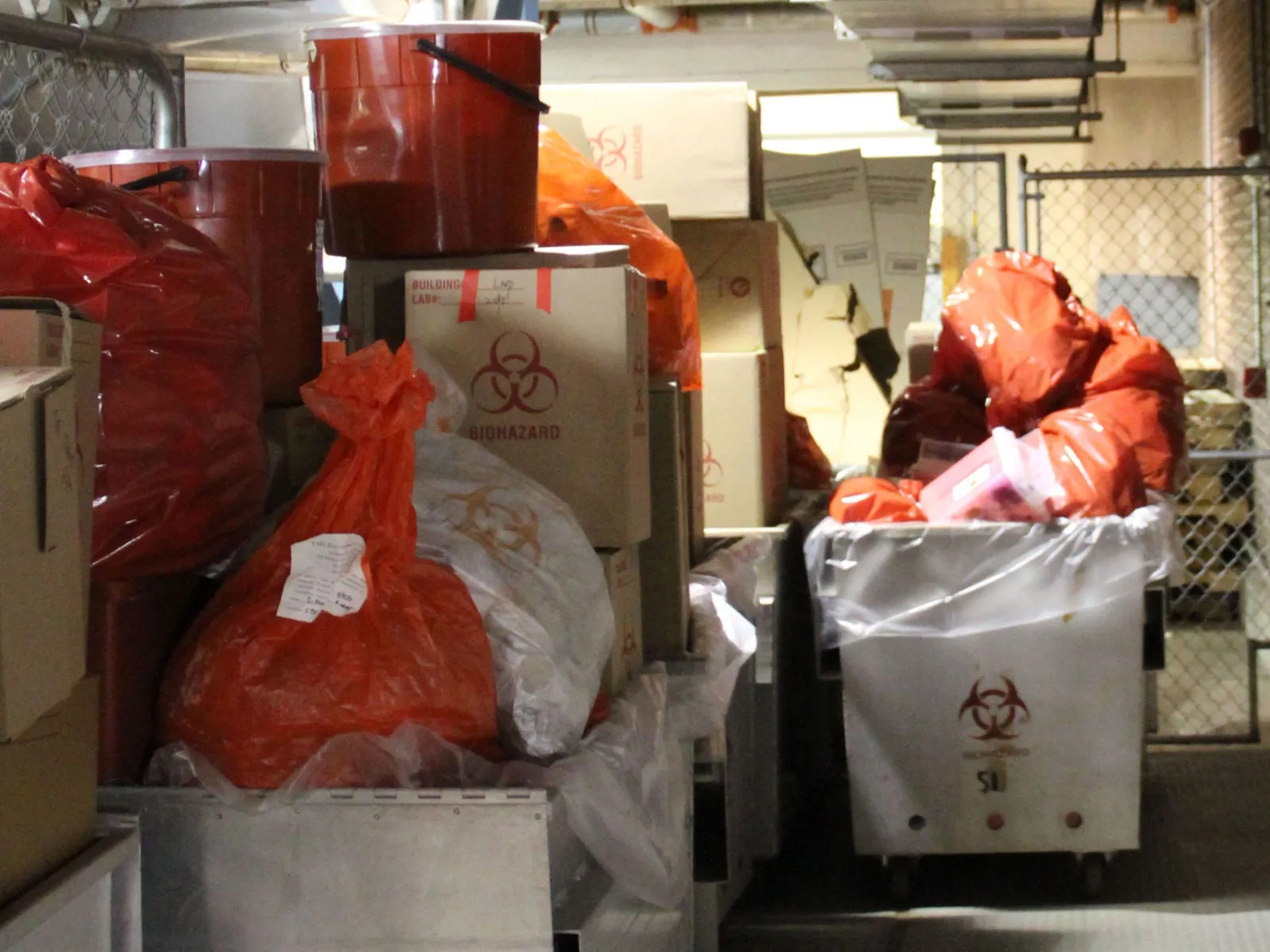
Maro’s group, along with local health regulators, have also been deeply frustrated with state officials over their response to noise complaints. Maro claimed DEEP officials “didn’t even know” that Reworld was actively resolving noise complaints when it did outreach regarding the biomedical waste permit last year.
DEEP officials did not address the noise issues in their proposed approval of Reworld’s biomedical waste incineration permit, and did not respond to those concerns at a recent hearing over proposed changes to incineration requirements in the state legislature.
Pickering, who has worked with Bristol Residents for Clean Air, blames the issues in part on the long regulatory chain to field industrial noise complaints. While state environmental regulators set minimum standards, it’s up to municipalities to enforce them. Bristol, like other municipalities, has in turn delegated that enforcement to its health district. If an entity appeals a finding of a noise violation, the process is sent to state health regulators, not DEEP.
In Reworld Bristol’s case, the facility was found to be in violation of its noise permits in August. Sound engineers hired by the health district found Reworld’s facility was violating noise laws after conducting measurements in May and June of last year. Pickering conducted his own readings in August at a retirement community near the facility and found noise levels still exceeded the legal limit.
The health district most recently found the facility was violating noise regulations in January. It’s considering fines to bring Reworld into compliance, according to Keith Ainsworth, a lawyer representing the district.
For its part, Reworld said it has installed new “quiet fan technology” and new inserts for two boilers to reduce noise. It said the yearslong permitting process ensures the facility will handle medical waste responsibly.
“We remain committed to working with the town, the health district, and state elected officials to ensure we address all community concerns, and that we continue operating in a safe and effective manner to the benefit of Bristol and surrounding communities,” Koltis said in an emailed statement.
Preston expansion
Bristol is not the only Connecticut municipality where Reworld would like to expand its services. Preston, located in the state’s southeast corner, is also exploring new incineration capacity.
Reworld currently leases land from the Southeastern Connecticut Regional Resources Recovery Authority to operate its facility there, known as SECONN. The mass burn incineration plant can process up to 689 tons of material per day, and is currently in the permit renewal process.
In December, local publication The Day reported that Reworld is mulling new MSW incineration capacity at a site owned by SCRRRA, which would complement a planned full-scale composting facility.
The company has begun meeting with local officials to discuss building a new plant, which could more than double incineration capacity in Preston from 230,000 tons per year to about 500,000.
Koltis said Reworld plans to build a new facility without state subsidies or funding. He anticipates it would cost at least $700 million to build, and the company wants to get the project commissioned around 2030. SCRRRA currently sends its waste to a facility owned by Win Waste Innovations in Lisbon, Connecticut, but Reworld is hoping to negotiate a contract to accept that waste at its Preston project. SCRRRA manages about 120,000 tons of waste annually, Koltis said.
Reworld will likely navigate community concerns over emissions and face pressure to use the latest technology. The most recent MSW incineration project built in the U.S., located in West Palm Beach, Florida, employed selective catalytic reduction technology to reduce nitrogen oxide emissions. Koltis declined to say whether a new Preston facility would use the same, noting plans are in their early stages. Reworld plans to submit a permit application for a new Preston site by the end of the year, he said.
Two waste-to-energy facilities have closed in Connecticut in recent years, most recently in Hartford in 2022. Run by the quasi-public Materials Innovation and Recovery Authority, the Hartford refuse-derived fuel plant was facing increasingly untenable economics after filling its ash landfill and losing municipalities that had once agreed to send their trash, said Egan, who oversaw the facility as MIRA’s director of operations and environmental affairs. After the closure, MIRA began transferring trash from 28 member towns to a landfill in Pennsylvania.
Egan said in order for a facility like the one proposed in Preston to be financially viable, an operator like Reworld will likely need at least 15 years of guaranteed waste inflow from municipal clients. He also expects DEEP to require diversion initiatives to remove waste that could see a beneficial use (Reworld already recycles about 9,000 tons of metal annually from its Preston facility.)
Egan said a new incineration facility could work economically because disposal capacity across the northeastern United States has decreased. But he said the real question of whether the Northeast could see a new incineration facility get built comes down to the cost of complying with regulations.
“There’s just more rules. The air emissions requirements are much more restrictive than they were 35, 40 years ago,” when the last wave of facilities was built, Egan said. “It’s going to be more difficult, and it’s going to be more costly.”
Correction: This story has been updated with the appropriate attribution for a quote from Reworld about its Bristol facility.


